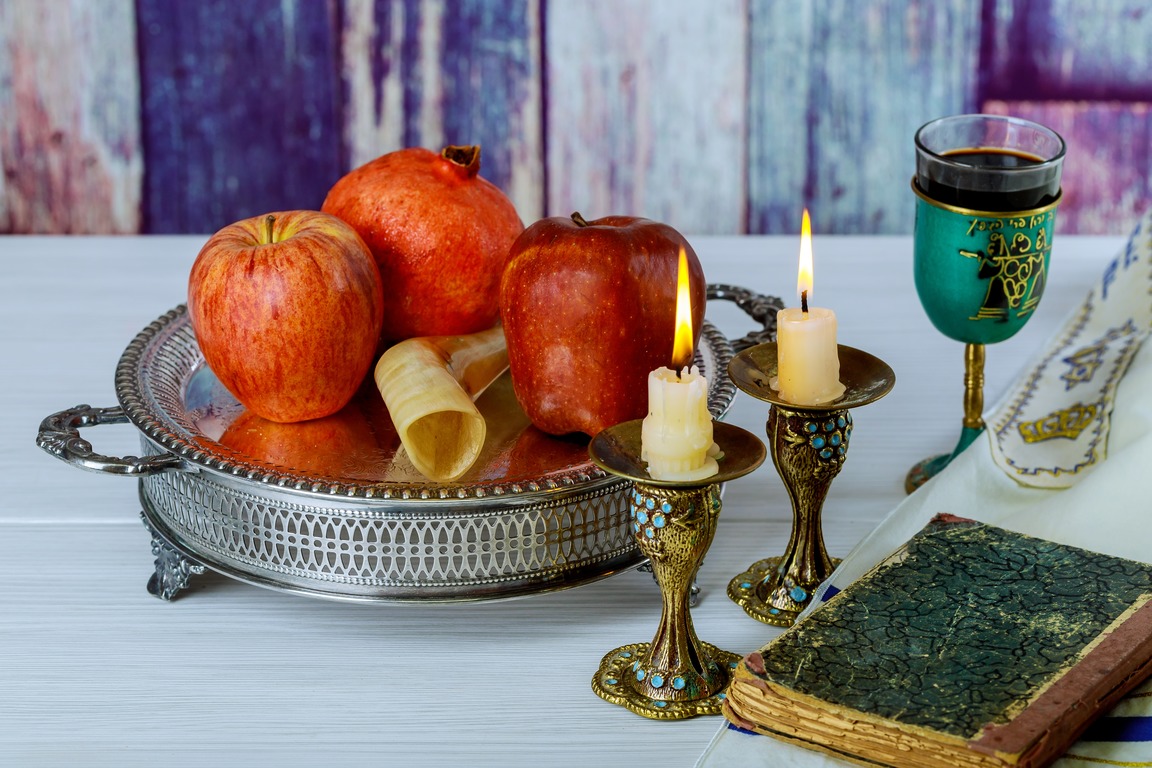Judaism has a number of feasts and festivals that hold a specific meaning to Jews everywhere. There are festivals that were given specifically to the Jewish people, festivals that happen during the spring and those that happen in fall. Yom Kippur, which is also known as the Day of Atonement, is the holiest day in the Jewish calendar and is one of the fall festivals. It is a solemn occasion dedicated to repentance, reflection, and spiritual renewal.
The Yom Kippur festival is one of the most important observances that is kept in the Jewish tradition. The role of the festival is that it is a time for seeking forgiveness from God and reconciling with others. It is also an opportunity for personal growth and transformation. If you happen to be in the Poconos close to the time of this festival, then HolidayKeepers provides some of the best kosher vacation rentals to stay in while observing the festival with your family.
Yom Kippur History and Origins
The Yom Kippur in the Bible has its roots tracing back to the time of ancient Israel. It has biblical references in the Torah, particularly in the Book of Leviticus. In Leviticus, God commands Aaron to perform a complicated sacrificial procedure in the Temple that later came to be known as the Yom Kippur Temple service.
This was the only day that Aaron or a High Priest was allowed to enter the innermost sanctum of the Temple, the Holy of Holies. The High Priest also performs a purification ritual for the entire community to be cleansed of sins.
The priest sprinkles sacrificial blood from animals onto the ark to symbolically absolve the sins of the community. A goat is released into the wilderness to show that the sins of the community are taken away.
Yom Kippur meaning is for the Jewish people to practice repentance, forgiveness, and atonement of their sins from the previous year and learn from these mistakes through introspection. It is also symbolic of the Israelites’ journey from slavery in Egypt to redemption in the Promised Land.
In addition to Yom Kippur, there are several other festivals celebrated by Jewish people around the world. Check out our blog post on Jewish festivals to know more about these different festivals.
Yom Kippur Customs and Traditions
The Kippur holiday has various set of customs and traditions followed by Jews all over the world. The Jewish people have to spend the entire day of the festival in Yom Kippur prayer, repentance and 25-hour fasting. These are the central practices of the festival.
The mitzvot of Yom Kippur advices every Jew to practice fasting from food and drink, refraining from work and worldly activities, and engaging in intensive prayer and introspection. Some additional customs associated with the festival include the recitation of special prayers and liturgical readings including Torah reading on Yom Kippur, wearing white garments as a symbol of purity, and participating in communal acts of charity and reconciliation.
Spiritual Reflection and Self-Examination
In this section, let us know more about the spiritual significance of the Day of Atonement in the Bible. It calls for a time for deep reflection and self-examination, letting individuals confront their shortcomings and strive for personal growth.
The traditional practice of vidui/confession and teshuvah/repentance encourages people to acknowledge their mistakes, seek forgiveness from those they have wronged, and commit to positive change.
Laparah/atonement is a good approach for spiritual purification and renewal. Sincere repentance and forgiveness can have transformative power as it can free one to progress in life without any unnecessary emotional burdens.
Community and Communal Prayer
One important aspect of the festival is communal prayer and collective repentance. Jews all over the globe come together as a community to seek forgiveness and support one another in their synagogues.
At the synagogues, various services are offered to the people to benefit from the Yom Kippur festival. The services include the recitation of special prayers such as the Kol Nidre and the Neilah service, as well as the reading of the Book of Jonah and other liturgical texts.
In America, many Jewish communities hold a “mock Yom Kippur” by participating in synagogue services on the Jewish New Year of Rosh Hashanah. The people read aloud the Book of Jonah, which is the story of a man named Jonah who repented for his sins. This is to symbolize repentance without the need for fasting or restrictions on food or drinks.
In France, this festival is known as ‘Le jour des grandes pardons’ and a 25-hour period of fast is observed. Germany has many customs associated with the festival like wearing white dresses to symbolize the purity of soul and lighting candles to mark the beginning of the holy day. In some countries, the festival is also observed as a Jewish fasting holiday or national holiday.
Fasting During Yom Kippur
Here, let us explore the spiritual significance of the fasting practice in the festival. Fasting is a symbol of self-denial and spiritual discipline. It helps us feel empathy and solidarity towards those who are less fortunate than us. In addition to this, fasting also provides spiritual rewards like heightened mindfulness, increased empathy, and a deeper sense of connection to God and one’s innermost self.
There are some physical and emotional challenges of fasting for 25 hours, such as body weakness, spikes and lows in blood sugar levels, lethargy and lack of focus. It is crucial to prepare for the fast properly and maintain health and well-being throughout the day as you attend the Yom Kippur services. Here are a few practical tips and guidance to help you with your fasting.
- Get a good night’s sleep before the fasting day to ensure you do not feel lethargic during the fast.
- Eat a healthy meal before the fast starts to keep your blood sugar level stable.
- Avoid salty or spicy meals before the fast as this can make you feel more thirsty.
- Reduce caffeine from coffee and other beverages at least a week before the fast to avoid headaches from caffeine withdrawal.
Conclusion
The Yom Kippur celebration has profound spiritual significance and transformative potential for individuals and communities alike. It gives a powerful message that focuses on the human capacity for growth and transformation. The festival gives an opportunity for individuals to introspect on the mistakes of the past and find ways to correct them, set new goals and improve their life. I urge you to approach the festival with sincerity, humility, openness to change, and also embrace the opportunity for renewal and growth that the day offers.
Wishing you a meaningful and inspiring Yom Kippur. I hope that the guide has provided valuable insights and guidance for experiencing the holiest day in the Jewish calendar to the fullest extent.
If you are interested in staying in the Poconos for an amazing vacation, HolidayKeepers offer a variety of luxury homes and vacation rentals to help you with your stay. The rentals have ample amenities so that you experience a convenient vacation. Reach out to us to know more about this.




